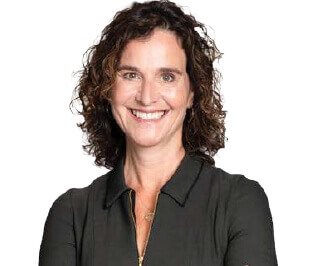Listen up, marketers
If it works for you to listen to the occasional marketing podcast, you now have a wealth of them to choose from. There are those that front big names and gurus from the industry, like Seth Godin on Marketing Over Coffee, or Rory Sutherland’s On Brand. There are others that showcase brand stories from marketing leaders, like The CMO Podcast, or MW’s own This Much I Learned. And there are some great ones in adjacent space, like How I built This, offering perspectives on innovation from successful entrepreneurs.
But ask me which marketing podcast I would counsel as required listening for everyone in our industry and I’ll choose the BBC’s Listening Project – also available simply by tuning in at lunchtime on Sundays to Radio 4.
It doesn’t feature any marketing gurus, heavyweights or even journeyman practitioners. So why do I call it a ‘marketing podcast’ – even if the BBC most pointedly does not. Is it that it gives voice to consumers, perhaps?
Well, it’s a yes-and-no answer to that, and therein lies my point. The people you hear on it are consumers in the sense that, at some stage, everyone is. But they are not talking in that role – or at least, not much. They are there simply as people, so it’s a reminder to all of us that if we wish to ‘connect with consumers’ we must really connect with the person inside.
If you’ve ever put the headphones on for The Listening Project, you’ll know the format. Two people who don’t necessarily know each other get to engage in conversation about an everyday subject. It could be what it’s like to go on holiday with kids who have ADHD, or whether it’s better to live in the city or the country, or the joys of fashion, or the frustrations of trying catch a flight. The topics themselves aren’t earthshattering – and neither are the conversations. They are ordinary. And yet despite that – or because of it – they are quietly fascinating.
What makes the format work is that it is not an interview setup, which most podcasts are, and neither is it moderated. Yes, it’s edited – it would pretty much have to be, to come in at the right length – but you do get the feel of real people talking how they want to, and going where they go. There is an earthiness to these conversations and, embedded in that, a reminder of the cadences, quirks and non-sequiturs of everyday speech.
The Listening Project is grounding, and we need grounding, doing what we do. Because as marketers we spend an inordinate amount of time listening to what consumers have to say about our brands and our categories – but usually only after we’ve cajoled or bribed them into doing so.

That’s efficient in one way – we do need to know what they think – but misleading in another, since we miss out on context, and get no feel for everyday priorities. We also fail to hear and absorb the patterns of unfettered speech, which can put distance between us and them when it comes to communicating our brand messages. At the heart of it, the problem we have created as marketers is that we suffer from an excess of moderation. But we can change that.
Keeping research real
Even a focus group setting, artificial though it is, can be tailored to bring a bit more reality to our brand conversations. One way to achieve it is to ask the group simply to introduce themselves and talk among themselves for the first 15 minutes, perhaps offering them a starter topic loosely related to the sector. The session will be recorded with their permission, but the moderator will withdraw. You get what you get. And you’ll be surprised at what it can reveal.
I’ve sometimes gone further and asked groups to moderate themselves throughout. You give them a list of subtopics to cover if they can, and leave them to it. It can get random, they can wander, priorities can emerge that are not aligned with your own. But it is richer material in the end. What you lose in control you gain in veracity. And if the group wants to spend time delving into one thing at the total expense of another, that is learning in itself.
There is another habit worth getting into when you’re away from the research setting and there are no consumers in sight. When marketing teams come together for routine sessions, either at the office or online, start each meeting with a revelation of a real, overheard conversation. Rotate it, so everyone gets a chance to share an exchange they’ve happened to hear. Maybe something on the train, or in a shop, or at the gym. It could be about anything; it doesn’t matter. The team member simply relates it, reports it with as much accuracy as possible, and the team takes a moment to reflect on it.
You don’t have to infer ‘learnings’. Nobody needs to analyse. It isn’t necessary to use that most overdone word ‘insight’. It’s simpler and subtler than that. Given that consumers are people, and people use words in abstruse, blurry and sometimes counterintuitive ways to communicate, think of it simply as a brief moment of tuning in. From what I hear, when marketers talk one-dimensionally about ‘their’ consumers, it is something we don’t do nearly enough.
